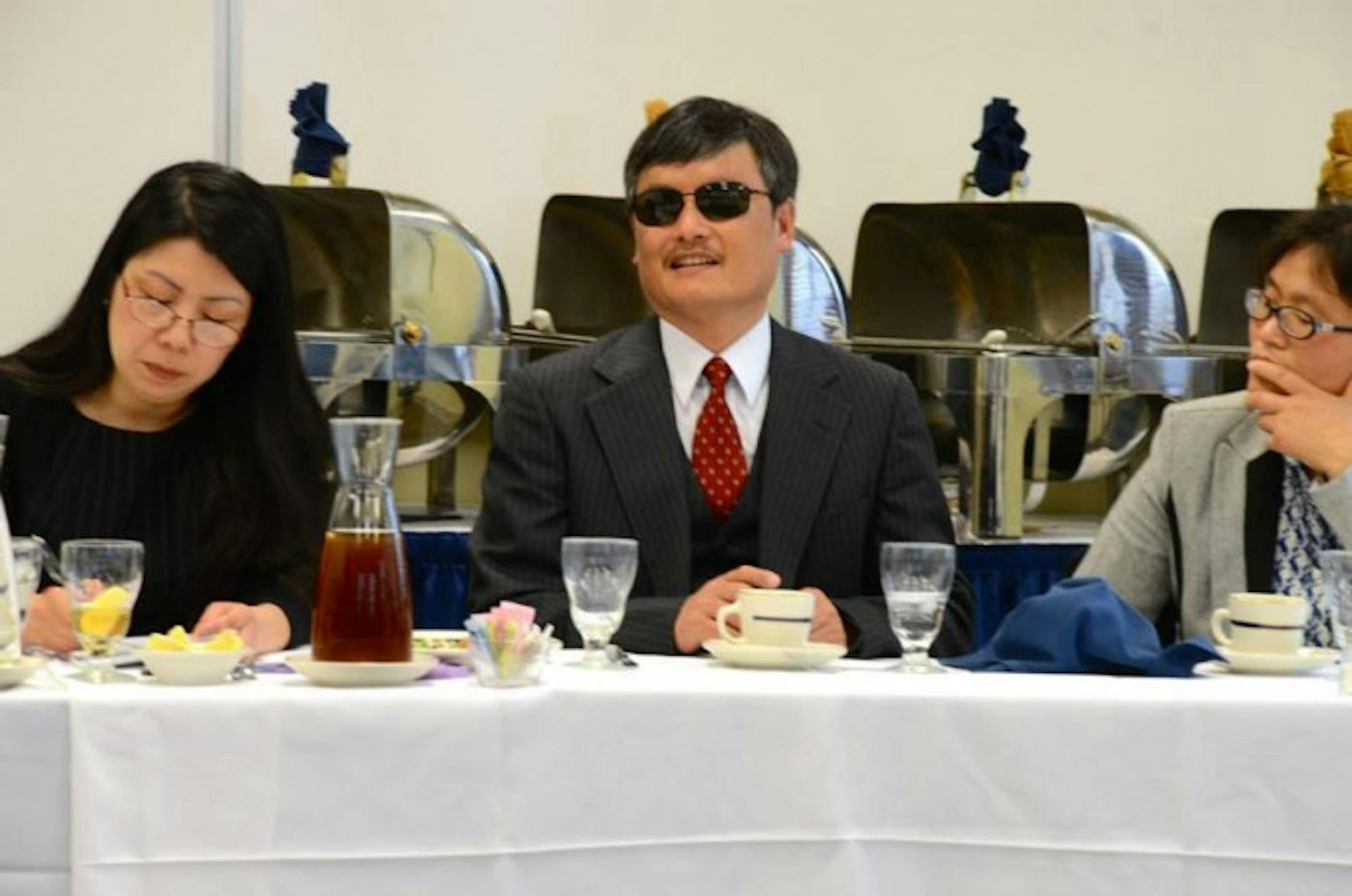Prominent Chinese civil rights advocate and political dissident Chen Guangcheng delivered the University of Notre Dame 2015 Human Dignity Lecture, entitled "Interpreting Reform: Human Dignity and Human Rights in Contemporary China," Tuesday evening in McKenna Hall. With the aid of a translator, the “barefoot lawyer” discussed his personal experiences as a legal counsel for poor rural Chinese citizens, the persecution he faced from the government and the state of civil rights in modern China.

Courtesy of the Institute for Church Life
Courtesy of the Institute for Church Life
“As long as you remain true to your cause as an activist, the communist party will continue to persecute you,” Chen said through his translator. “There is really no moral limit.”
Chen said although many Americans now visit China, they typically only stay in the modernized cities and avoid rural areas. This limited perspective, Chen said, can contribute to misconceptions about how the Chinese people actually live. He said that over 70 percent of the population lives in rural areas.
“If you look at some of the official published statistics, you will get the impression that many of the farmers or poor peasants enjoy a relatively good life, but what I can tell you is that those data are not true,” Chen said.
After conducting his own studies, Chen said the actual standard of living for the vast majority of the agrarian Chinese population is much lower than the figures the government issues publicly. Further compounding this poverty, Chen said, is the fact that local peasants receive virtually no monetary support from the government.
“Right now it is undeniable that China’s new exercises are autocratic,” Chen said. “It is truly a one-party state.”
Chen said he began his career as an activist by representing the disabled in rural areas who are entitled to benefits by Chinese law, but instead receive nothing and are even taxed. Their plight is compounded by a dearth of access to legal counsel caused by their lack of money and the general reluctance of lawyers to pursue cases that could be considered anti-government, Chen said.
However, Chen said the issue of coercive family planning practice also drew his attention and deserved more scrutiny. According to Chen, government agents use physical violence to enforce reproductive policy and the one-child rule in particular.
“Oftentimes, the way they do it is to not only punish the woman who is pregnant with her second child, but also to go beyond herself such as her immediate family, relatives, siblings, uncles and aunts,” Chen said.
The abuses of the government in this regard include threats of violence, torture, and physically forcing women to undergo abortions, Chen said, as well as forging consent forms to use as legal cover. According to Chen’s estimates, there have been over 30,000 cases of forced abortions and overall 360 million Chinese women have gotten abortions. Chen said this has resulted in massive social problems in China, including a substantial gender gap in the population and unusually small families being unable to support older relatives.
Chen said seeing these injustices made him dedicate his life to activism, and he has suffered repercussions, ranging from torture and physical abuse to financial bribery, because of it. However, he said he will persevere in this cause and continue to to help his fellow countrymen.
“On the other side, for foreigners or people who have an interest in China, I hope you all will hold more of a long-term view and do not compromise, do not give in to the communist party,” Chen said. “I think the future is bright.”
Editor's Note: The original version of this article referred to Chen Guangcheng by his given name, Guangcheng, instead of his family name, Chen. The Observer regrets this error.













